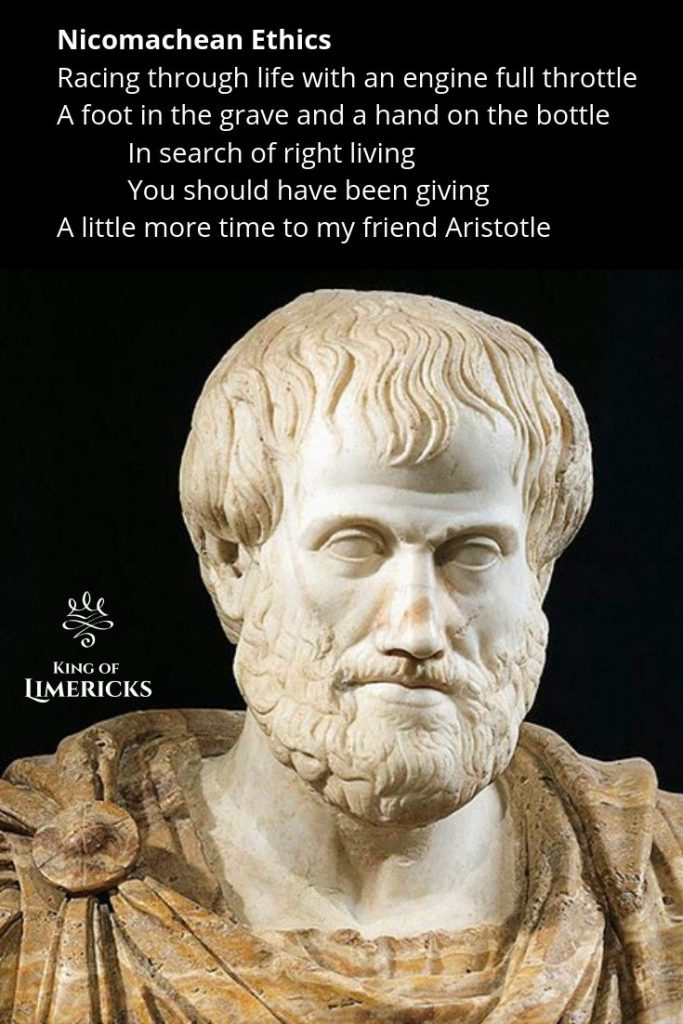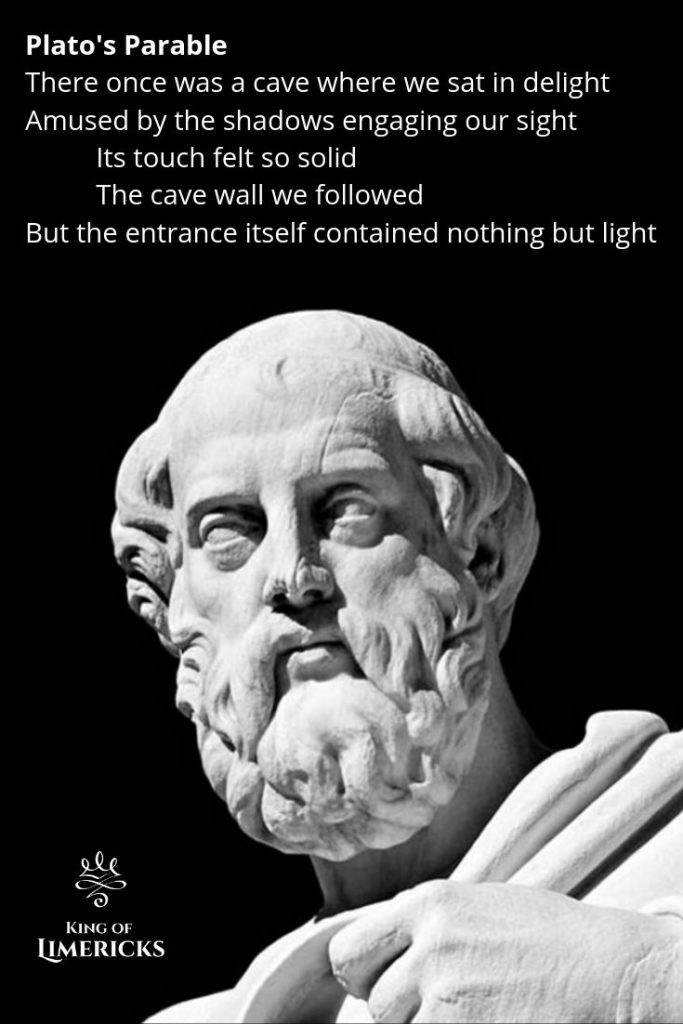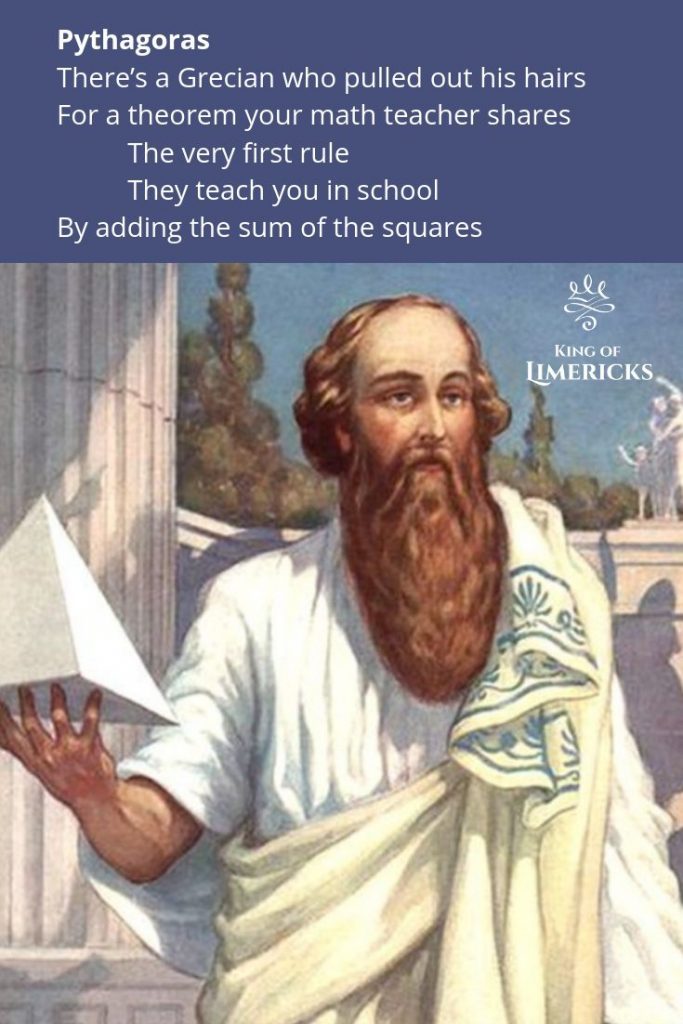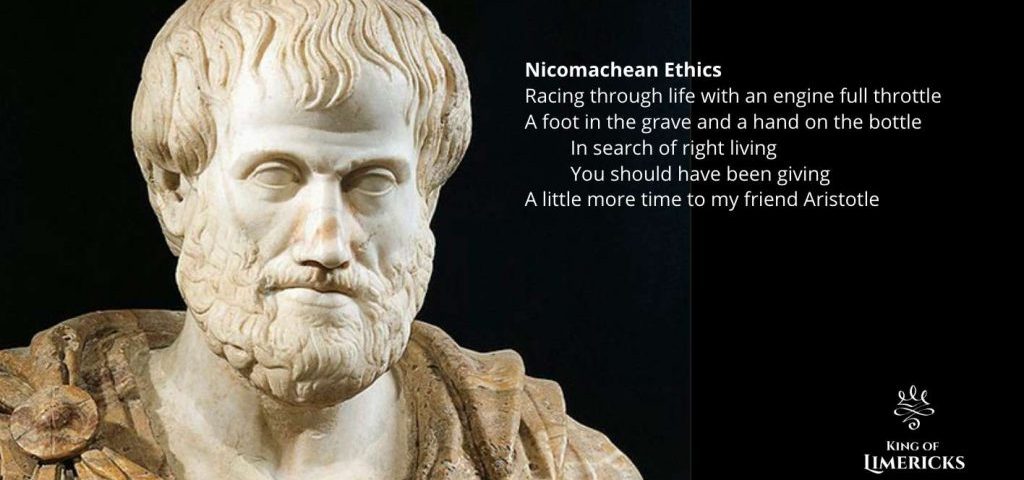
Limericks about the Flood

Engaging Limericks about Egypt
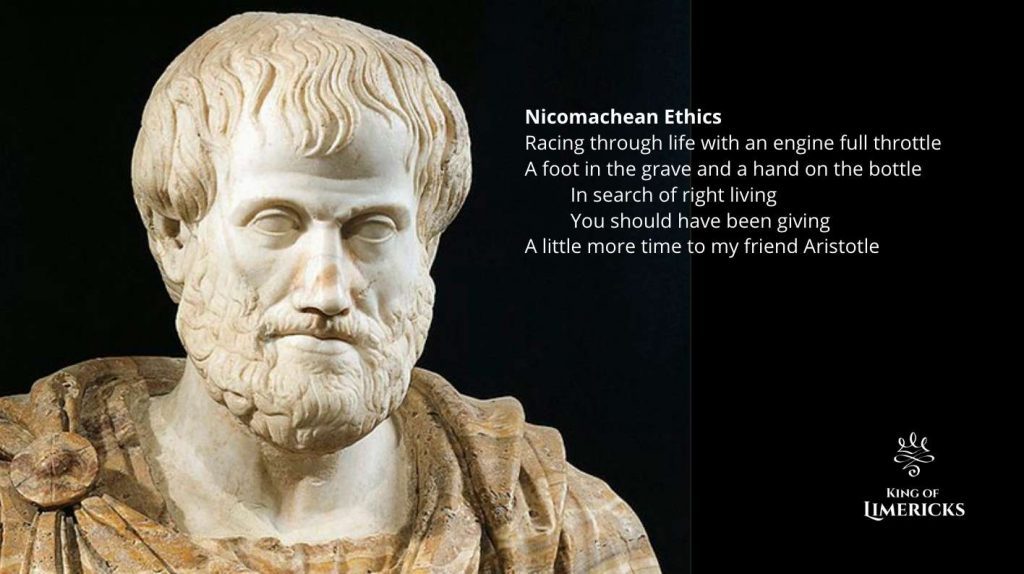
Picture, if you will, the island of Samos. The year is 547 B.C. and the sunshine is sparkling on the choppy waters of the Aegean Sea. In the marketplace a young scholar is pontificating with wild gesticulations over the nature of the soul, the harmony of the spheres, and the hypotenuse of the right triangle.
His fellow Grecians, for the most part, go about their business and assume the young chatterbox has gone hopping map, the victim of heat stroke or too much ouzo. Meanwhile, a handful of devoted followers latch on to these outlandish ideas, and soon enough, a whole school of philosophy—and western civilization itself—is born.
Like that crowded marketplace, most people today are still shuffling about their business, oblivious to the great puzzles of mind and body, emptiness and form, being and non-being. But for the few of us who have ears to listen and eyes to see, the following set of limericks about Greek philosophy may leave you scratching your chin.
Back in the day, his legion of followers formed a religion, Pythagoreanism. Toady he’s mostly remembered for the geometry equation.
Pythagoras
There’s a Grecian who pulled out his hairs
For a theorem your math teacher shares
The very first rule
They teach you in school
By adding the sum of the squares
Heraclitus was a staunch proponent of the unity of opposites. Today he would probably have a Yin Yang tattoo to go along with his hipster facial hair.
Panta Rhei
There once was a Greek of great prose
Who told the world: everything flows
It’s all been in flux
Ever since Fiat Lux
Like a river it comes and it goes
Protagoras is most often associated with the expression, “Man is the measure of all things”, which basically suggests that the truth is just a matter of opinion.
The King of Sophistry
Protagoras recognized every perspective
The measure of man means that nothing’s objective
If truth is two-sided
It can’t be decided
And every last premise is somehow defective
Zeno’s Paradox relies on the premise that the distance to the finish line is always reduced by a fraction, and therefore you never quite reach it. Experience tells us otherwise, and so it’s easy to discount Zeno’s conclusion, yet it’s extremely difficult to pinpoint the fallacy in his logic.
Zeno of Elea
Zeno, you puzzling zealot
The turtle would win, as you tell it
Ahead in the race
With infinite space
You’re so full of shit, I can smell it
The following man needs no introduction. According to Alfred North Whitehead, the history of Western Philosophy is basically made up of footnotes to Plato. His student, Aristotle, was no slouch either.
Plato
That Athenian thinker of yore
With questions like Why? and What for?
Aristotle he taught
And the answers they sought
Just like Socrates asked them before
Plato’s Symposium
The original men with four arms and four feet
Were divided by gods into persons discrete
Now our lives are spent healing
This wound that we’re feeling
In search of the lover to make us complete
Plato’s Parable
There once was a cave where we sat in delight
Amused by the shadows engaging our sight
Its touch felt so solid
The cave wall we followed
But the entrance itself contained nothing but light
Nicomachean Ethics
Racing through life with an engine full throttle
A foot in the grave and a hand on the bottle
In search of right living
You should have been giving
A little more time to my friend Aristotle
Further Reading
If you liked these limericks about Greek philosophy, you’ll be sure to enjoy:
- Limericks about Western Philosophy
- Limericks about German Philosophers
- Limericks about the Mind Body Problem
- Limericks about Existentialism
- Limericks about Ancient Rome
- Limericks about Greek Gods
- 8 Common questions about limericks
